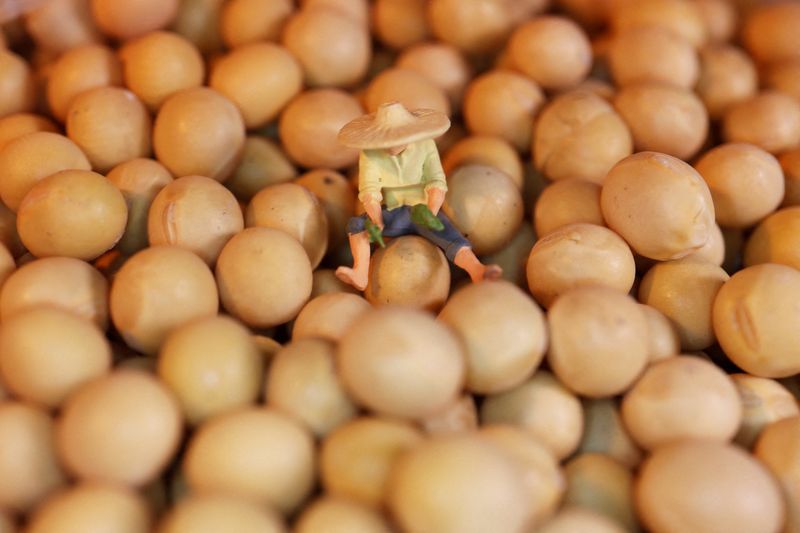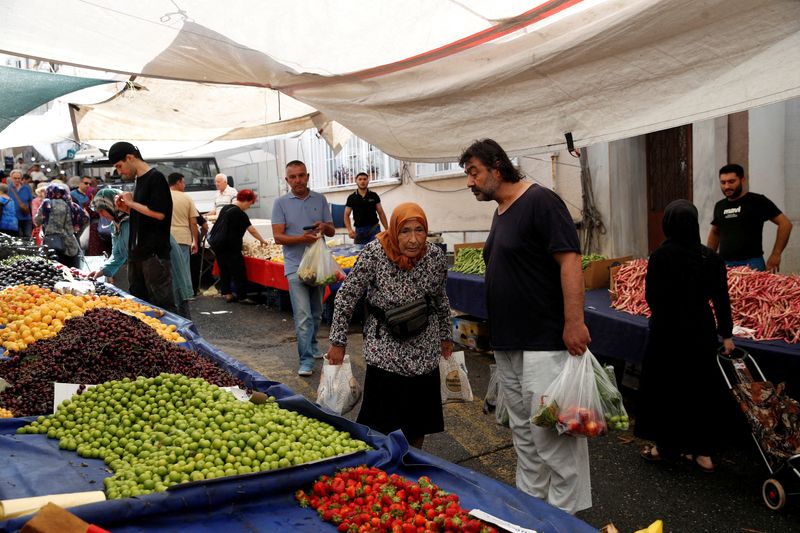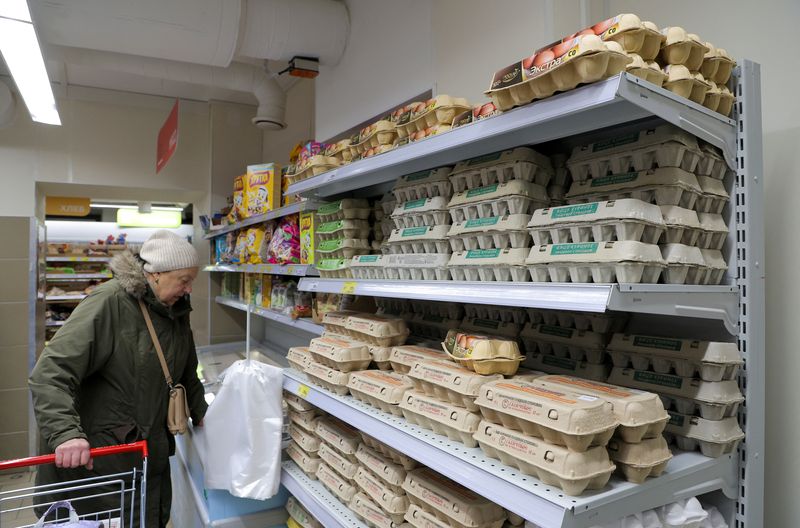By Mei Mei Chu
BEIJING (Reuters) – Since the U.S. and China imposed tit-for-tat tariffs in their trade war during Donald Trump’s first presidential term, Beijing has taken steps to reduce its reliance on American farm goods in a wider effort to bolster its food security.
That has put China in a better position to withstand tariffs of at least 60% on Chinese imports threatened by Trump, set to return to the White House in January, raising the prospect of Chinese retaliation again targeted at U.S. agricultural goods.
In his first term, Trump slapped duties on $370 billion worth of Chinese goods. Beijing retaliated with tariffs of up to 25% on over $100 billion worth of U.S. products, targeting soybeans, beef, pork, wheat, corn and sorghum.
In the years since, the share of China’s soybean imports from the U.S. – the top American export to China – has dropped to 18% in 2024 from 40% in 2016, according to Chinese customs data, as China has turned instead to imports from Brazil, which has also replaced the U.S. as China’s top corn supplier.
China’s agriculture imports from the U.S. declined to $34 billion in 2023 from $43 billion in 2022, and are expected to drop further this year, according to Chinese customs data.
The following details China’s efforts since the trade war with the U.S. to diversify agriculture supply sources, boost local production, and bolster food security:
Aug. 5, 2019: China halts purchases of U.S. agricultural products in retaliation against tariffs imposed by the Trump administration.
Jan. 16, 2020: Trump and China’s then-Vice Premier Liu He sign a “Phase One” trade agreement where China agrees to raise purchases of American goods by $200 billion over two years, including $32 billion in agriculture products.
2021: China launches commercial trial planting for genetically-modified corn and soybeans.
April 29, 2021: China adopts anti-food waste law to prevent grain wastage and bans binge-eating videos and excessive leftovers.
Feb. 1, 2022: U.S. trade official says China failed to meet its commitments under the “Phase 1” trade deal that expired at the end of 2021. Agriculture Secretary Tom Vilsack tells lawmakers that China’s purchases of U.S. farm goods fell short by about $13 billion.
Feb. 4, 2022: China allows imports of wheat and barley from all regions of Russia, the world’s biggest wheat exporter.
March 7, 2022: President Xi Jinping tells political advisers: “China must rely on self-reliance and feed itself … If we can’t hold our own rice bowls, we will be controlled by others … Food security is a strategic issue.”
May 25, 2022: China allows imports of Brazilian corn.
June 28, 2022: China passes a soil conservation law to protect crop yields in the breadbasket provinces of Heilongjiang, Jilin, Liaoning and Inner Mongolia, where decades of rapid industrialisation and overuse of pesticides degraded soil and curbed yields.
April 14, 2023: In bid to curb soybean imports, China rolls out plan to reduce soymeal ratios in animal feed to less than 13% by 2025, from 14.5% in 2022. It plans to approve microbial proteins for feed and pilot projects to use leftover food and animal carcasses for animal feed.
May 4, 2023: China approves a variety of gene-edited soybeans, its first approval of the technology to boost yields. Unlike gene-modification (GMO), gene-editing does not introduce foreign DNA, instead it manipulates the existing natural genome.
Dec. 26, 2023: China issues licenses to a first batch of 26 seed companies to produce and sell genetically modified corn and soybean seeds in certain provinces.
April 9, 2024: China launches drive to boost grain production by over 50 million metric tons by 2030. China produced a record 695.41 million tons of grain output in 2023.
May 9, 2024: China approves the safety of gene-edited wheat.
May 28, 2024: China allows imports of two varieties of genetically-modified corn grown in Argentina, the world’s third-largest exporter of the animal feed grain.
June 3, 2024: China’s first food security law aimed at achieving “absolute self-sufficiency” in staple grains and food production comes into effect.
The law holds central and provincial governments accountable for incorporating food security into their economic and development plans, including protection of farmland from conversion to other uses.

Oct. 25, 2024: China launches a 2024-2028 action plan to accelerate development of smart farming and precision agriculture to raise food output.
China’s agriculture ministry says the country is set to exceed a record 700 million metric tons of grain production in 2024.











